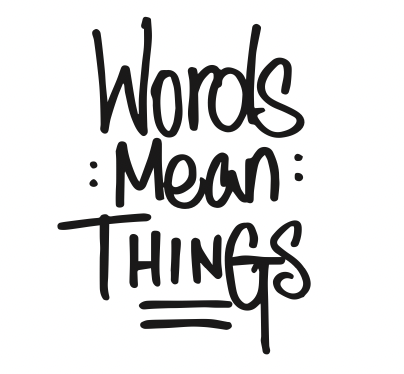
CONTENTS
- INTRODUCTION
- CENTRAL CONCEPTS
- One Coop
- First-Next Step
- Master’s Tools
- DEFINITIONS
- Youth, Student, NEET
- Education, Work, & Enterprise
- Economy
- ISMS
- Cooperativism
- Capitalism
- Neoliberalism
- Colonialism
- Imperialism
- Corporatism
- DIRTY WORDS?
- CONCLUSION
INTRODUCTION
Words have power. For instance, the difference between the words “profit” and “surplus,” a common distinction made within cooperative philosophy, is illustrative of how language can shift mindset and behavior. Theoretically, profit does not exist in a cooperative enterprise, as value is assessed in terms of need. Profit is not a need: anything in excess of what is needed is considered a “surplus.” Instead of getting paid out to individuals automatically, the potential allocations of any surplus are collectively assessed. A worldview that conceptualizes income generated beyond what is needed as “extra” compels very different behavior than one that aspires to maximize that excess to unnecessarily amass individual wealth. Language, particularly in a cooperative context, can represent a world of difference.
The impact one’s choice of language can have on behavior and belief is why this glossary style section is included as a central part of the toolkit, rather than in the back as a reference or addendum. Beyond definitions of words and concepts alongside elaborations of common acronyms, some historical lineage is shared within this “Words Mean Things” section to illustrate why and how specific language usages came to be. A considerable segment of the language intentionally deployed in this publication is not as readily found in other International Cooperative Alliance publications. Specifically, words such as “capitalism,” “neoliberalism,” “revolution,” and “social transformation” are used to name social, political, and economic phenomena directly, while these issues are more frequently referred to euphemistically or vaguely in much of contemporary cooperative literature. History and discussion of these concepts are included throughout this section, especially highlighted within the section “Dirty Words.”
Beyond serving as simply a glossary style reference, this section is also a representation of the philosophical worldview of contemporary coopyouth. There is likely a great deal of ideological difference within the Cooperative Movement that is not readily revealed, let alone understood, because the ways in which different groups and individuals conceive of terms and concepts is not often interrogated. This lack of active discourse and accountability is one factor in the ubiquitousness of nominal cooperatives in the world - which also exist as a result of colonizing nation-states creating false cooperatives to serve their exploitative ends, capitalist enterprises harvesting a marketing advantage through the use of the term, and due to the existence of cooperative legal statutes out of sync with the Cooperative Identity (i.e. an enterprise can incorporate as a cooperative without actually being one). An active and critical discourse around cooperativism is essential to the success and integrity of the philosophy and movement. To restate a sentiment from Ian MacPherson’s article discussing the 1995 Principles revision process - “it is in struggling to understand how the range of possible action implicit in cooperative thought, principles, and practice should be applied in the contemporary experience that cooperators make their contribution” (1998, 253). It is in this spirit that the following section is authored and offered.
